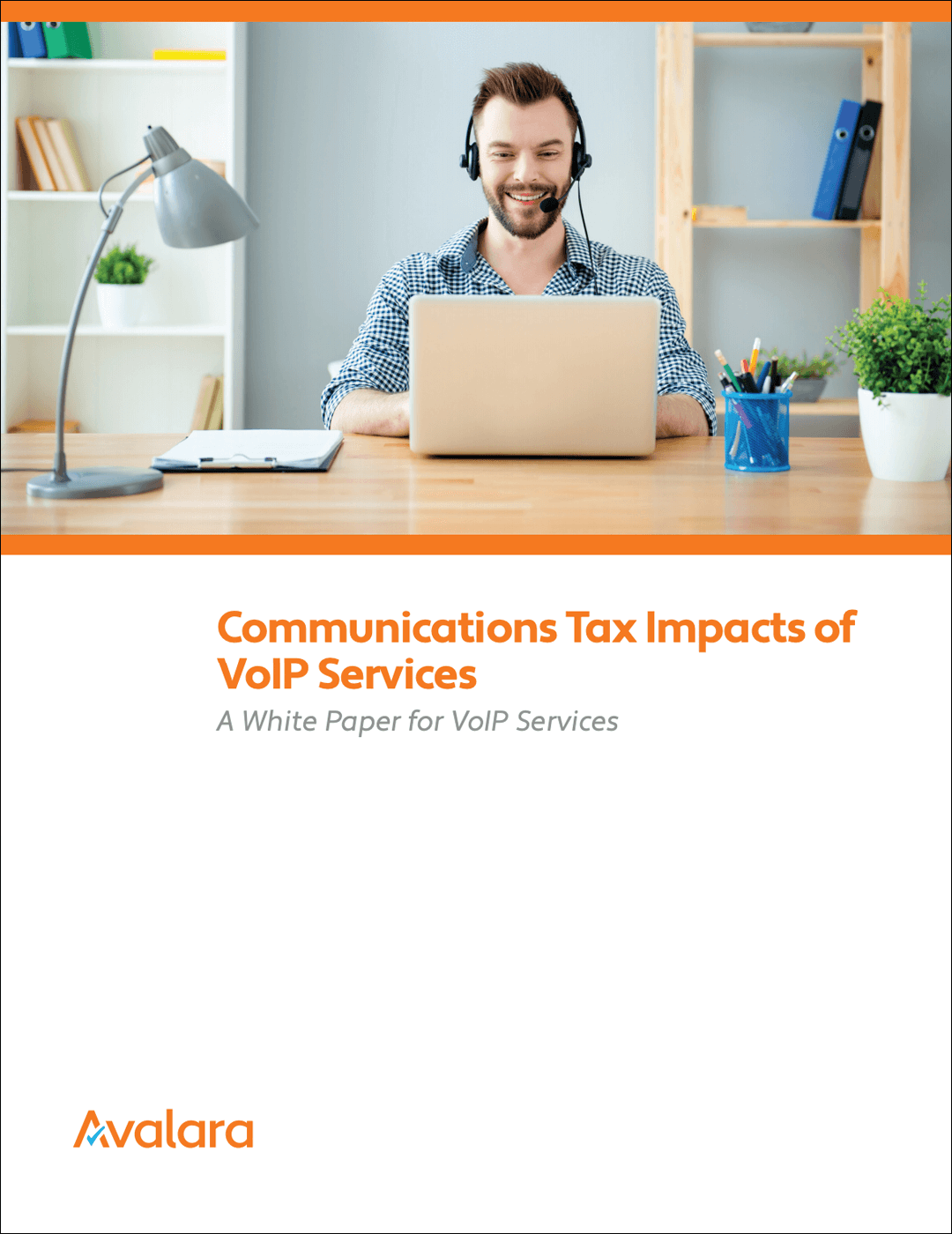Avalara Tax Guides
Communications Tax Impacts of VoIP Services
Voice over Internet Protocol (VoIP) is officially everywhere. From conference rooms to living room couches, it’s become a communication method of choice — both at home and at work. Tens of millions of users rely on an array of VoIP-powered services, from audio confer- encing to video chats to digital calls, to meet with remote employees, communicate with clients, provide customer support or simply catch up with friends and family.
The drive toward VoIP services is here to stay. Depending on the type of service, there are often no complicated phone bills to worry about, no long-distance calling fees, and little equipment to invest in. For users, VoIP is a hassle-free, simple solution.
However, the same cannot be said for VoIP providers— particularly when it comes to taxes and regulatory fees. There is an array of variables that can impact tax determination, calculation, and, ultimately, compliance. And as state and federal regulators continue to scrutinize the service, additional regulations further complicate what’s already a complex process.
This white paper serves to help VoIP providers understand what’s at stake from a communications tax perspective and plan accordingly.
VoIP tax implications
To remain compliant, it’s critically important to understand what types of service deliveries will make a provider liable for which specific communications taxes and regulatory fees.
Generally speaking, there’s more to consider with nomadic VoIP services than with static VoIP—and regulatory fees are where the biggest difference lies. When the origin of a call isn’t definitive, there may be less ground on which to stand from a state regulatory fee perspective. Similarly, compliance issues will differ significantly based on whether a VoIP service is interconnected or non-interconnected.
When a VoIP service is considered interconnected, several FCC regulations and complex requirements can come into play. For example, interconnected VoIP providers...
Complete the form on the right to download the complete white paper!

To remain compliant, it’s critically important to understand what types of service deliveries will make a provider liable for which specific communications taxes and regulatory fees.
With so many disparities in the way VoIP taxation and regulatory obligations take shape, providers must take proactive steps to remain compliant.
VoIP tax challenges are not limited to CSPs alone, but are increasingly faced by companies in a variety of industries as they grow and expand their business offerings.











